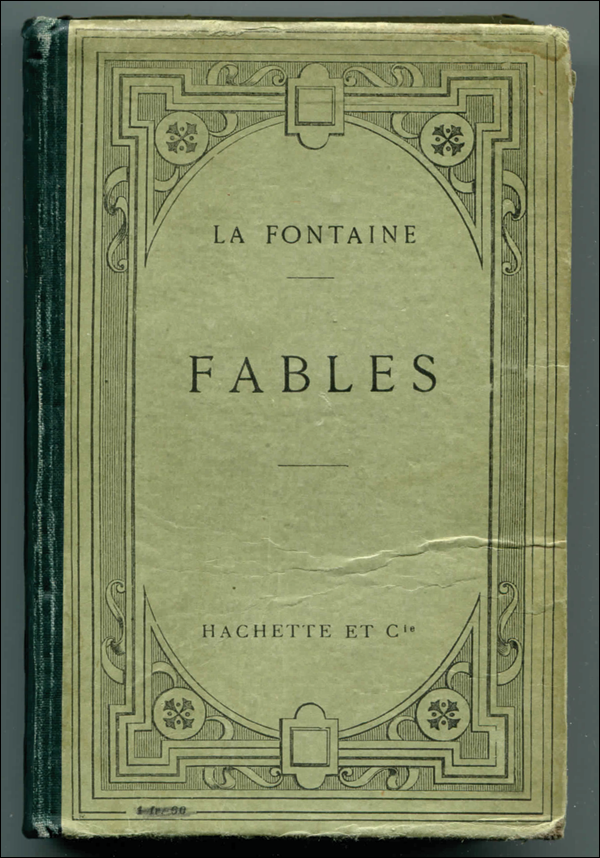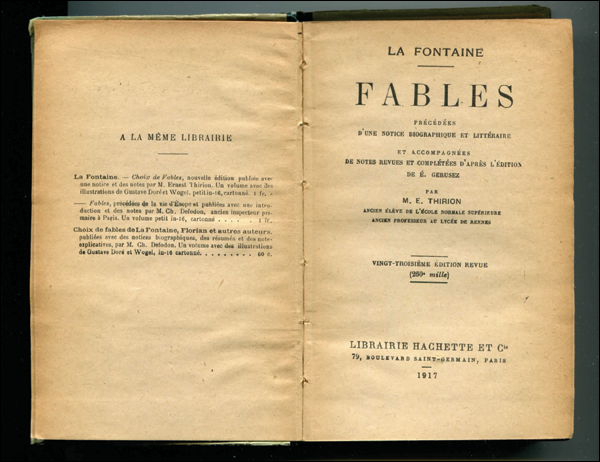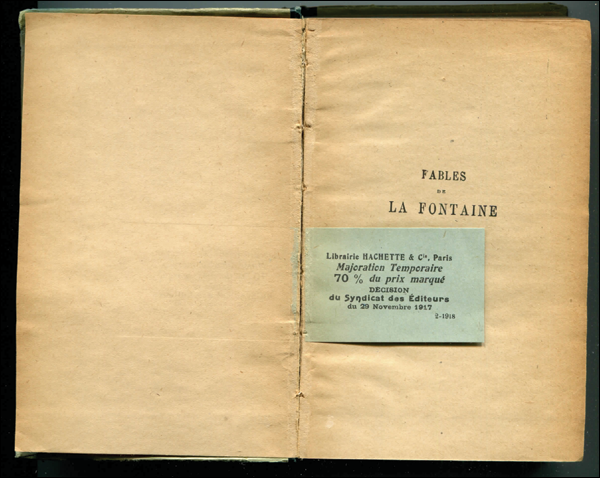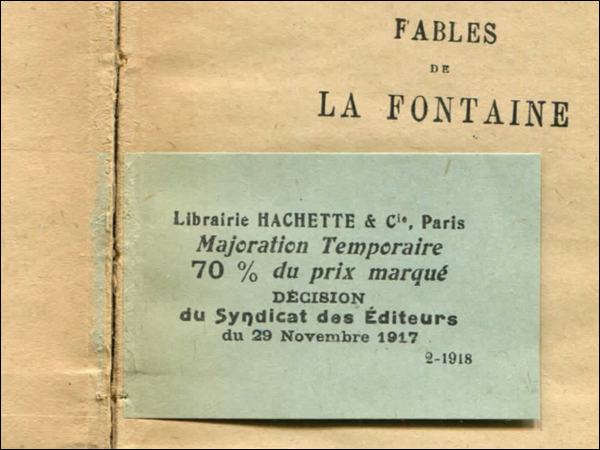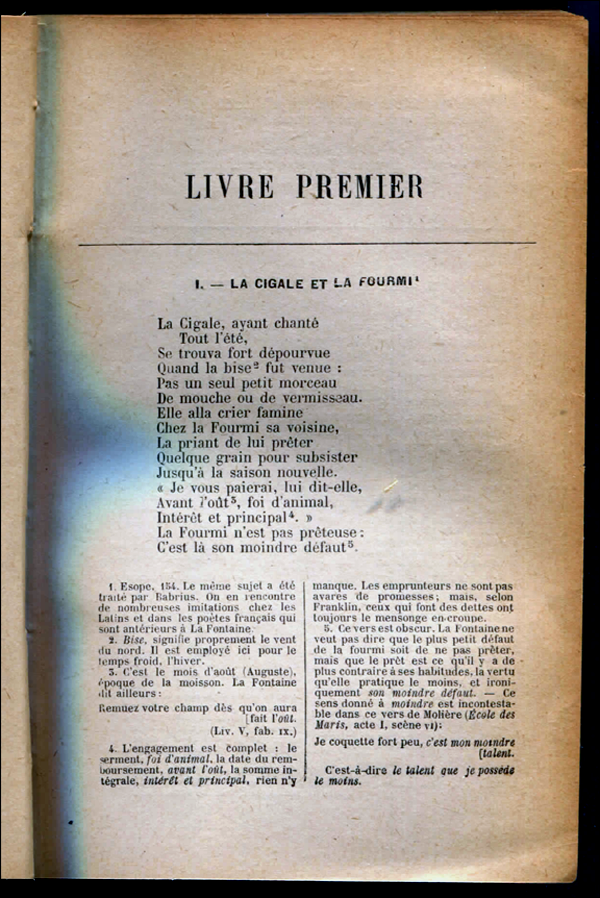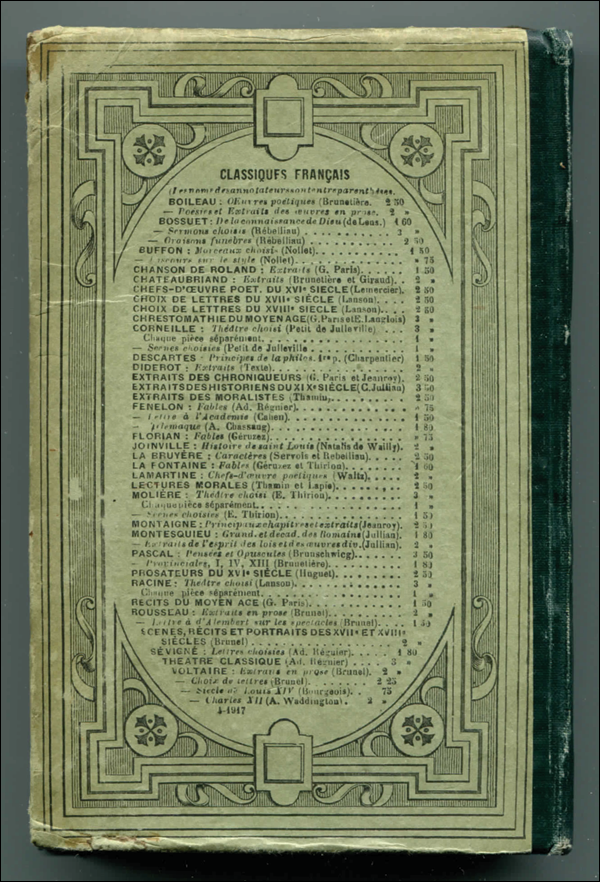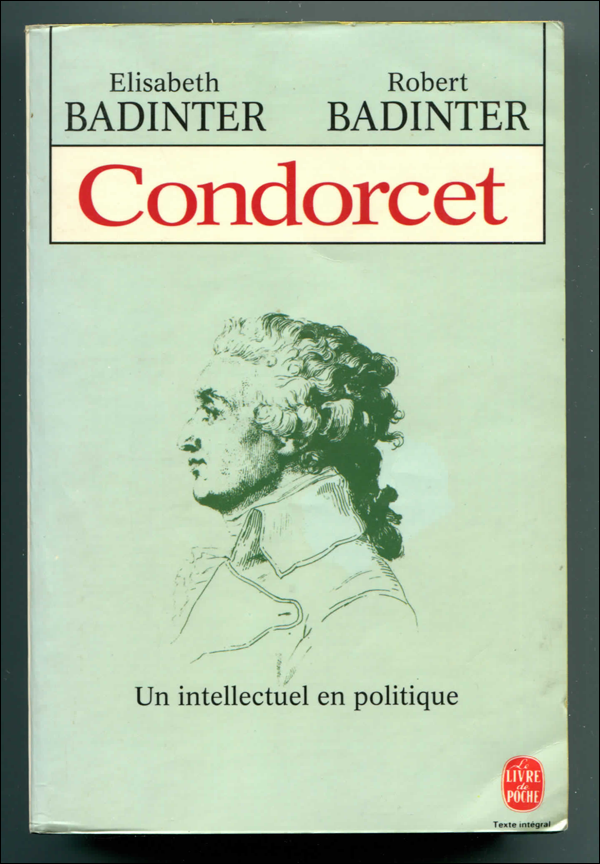I – LA CIGALE ET LA FOURMI
La Cigale, ayant chanté
Tout l’été,
Se trouva fort dépourvue
Quand la bise fut venue:
Pas un seul petit morceau
De mouche ou de vernisseau.
Elle alla crier famine
Chez la Fourmi sa voisine,
La priant de lui prêter
Quelque grain pour subsister
Jusqu’à la saison nouvelle.
« Je vous paierai, lui dit-elle,
Avant l’oût, foi d’animal,
Intérêt et principal. »
La Fourmi n’est pas prêteuse:
C’est là son moindre defaut.
« Que faisiez-vous au temps chaud?
Dit-elle à cette emprunteuse.
– Nuit et jour à tout venant
Je chantais, ne vous déplais.
– Vous chantiez? j’en suis fort aise:
Eh bien! dansez maintenant. »
La Fontaine, Fables, Librairie Hachette et Cie, Paris 1917.
This book used to belong to my father and it is about 102 years old come this 29th November. It was originally printed and published in 1917 – my grandmother was born in 1911 – bless her soul! The first World War was raging at the time and two decades later the second one was well and truly in the making.
I do believe that it is in fact one of the oldest artifacts that I have in my possession, however, there is one that is older. It may be merely by a year, but the oil painting hanging on my living room wall is in fact from 1916 (and it used to belong to my grandparents and was hanging on their living room wall.).
Does the title signify anything in particular? I’m confident that it does. My father was an avid fan of La Fontaine – Why? It has all to do with language, the written ones and in particular that of French. There are quite a few unanswered questions, I simply didn’t get the time to ask them all.
I know that he respected Strindberg as much as he loathed Hemingway, but I’m don’t know exactly why he did the latter (I could make an educated guess, but I’m refraining from doing so. And, furthermore I must admit that I haven’t read a single of his works; Hemingway’s that is.).
So, it is far from a co-incidence that this particular book was in his collection as were many others.
Condorcet (1743-1794) Un intellectuell en politique, E.Badinter & R.Badinter, Fayard 1988

